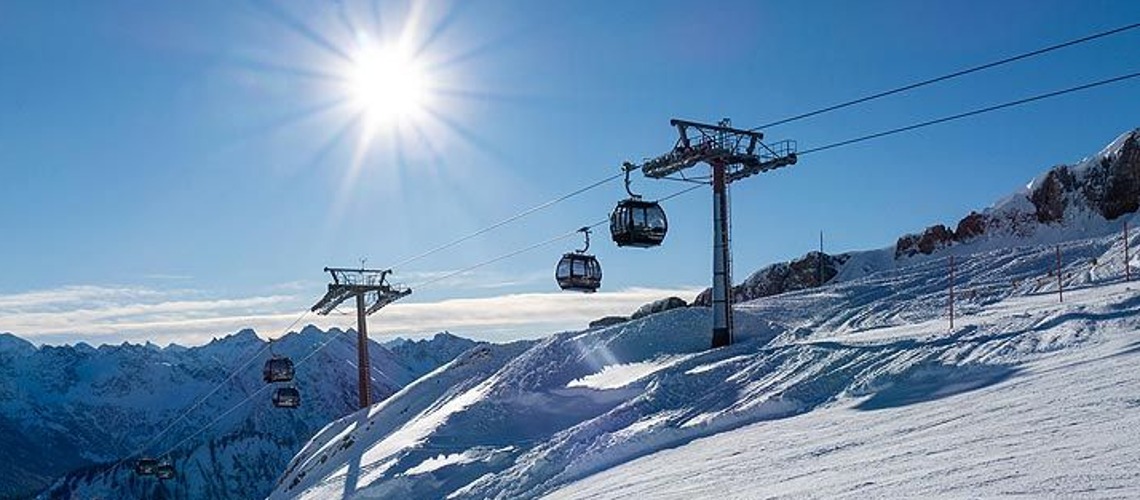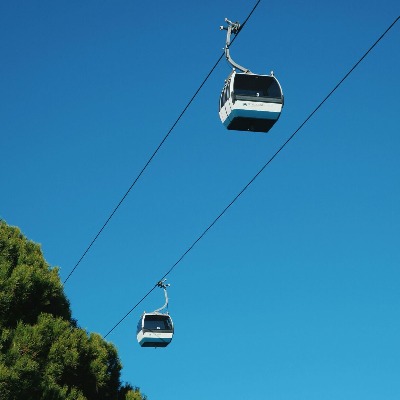Snow As A Unique Selling Point: Importance Of Winter Tourism For The Allgau.

Climate change not only poses major challenges for winter tourism. A strategy has been developed in the Allgäu to remain a destination with two strong seasons in the future. Why the Allgäu would like to continue to use snow as a unique selling point and what measures are being taken to make winter tourism sustainable is recorded in a 10-point paper. This paper was presented for the first time in a press conference in Nesselwang at the Alpsitzbahn.
Why the Allgäu relies on winter tourism.
The statistics of the last 20 years clearly show that overnight stays and arrivals have increased above average in the winter months. 36 percent of all overnight stays occur in the winter half of the year and 64 percent in the summer half of the year. The added value in the winter half-year, however, is 50 percent, which is 1.8 billion euros. Demand for winter sports is also stable and at a high level, confirms the national winter sports basic study by the German Sport University Cologne: 27.7 million Germans practice winter sports. They are not only found on the slopes, they often enjoy the landscape and the clear air while winter hiking, followed by snowboarding, snowshoeing, ski touring and cross-country skiing. A healthy vacation, mindfulness and wellness, and finding a distance from everyday life are other motives.
Nebelhornbahn: Built in 1929 for summer visitors, today popular with winter sports enthusiasts.
Henrik Volpert, board member of the Oberstdorf-Kleinwalsertal Bergbahnen and vice president of the Association of German Cable Cars and T-bars, underlines the commitment to winter tourism: Only six percent of all tourist destinations worldwide can offer two seasons and a year-round holiday offer. The Nebelhornbahn can be described as a pioneer: Originally built in 1929 as the longest cable car in Germany for summer visitors, the Nebelhorn is now perceived primarily as a high alpine all-season mountain. The mountain railway can easily be reached by train. The Allgäu has also launched a mobility concept to reduce CO2 emissions caused by traveling by car. Because 75 percent of the CO2 footprint of a vacation comes from the journey and only two percent from activities in the ski area. Some hotels, such as those in the Explorer group, reward the train journey with a discount on the overnight price.
A 10-point paper for winter tourism in the Allgäu
“The Allgäu is one of the few holiday areas in the world that has balanced year-round tourism and can score points with the snow experience,” says district administrator and chairwoman of the Allgäu/Bavarian-Swabia Tourism Association, Maria Rita Zinnecker. A 10-point paper has now been agreed upon together with numerous actors and stakeholders from politics, public tourism, private service providers, the mountain railway industry, as well as the hotel and accommodation industry. “It is important for us to communicate a fact-based presentation with appropriate sources for the individual points.” The paper expresses everyone's attitude, because everyone responsible is aware that they live with and from nature. Climate protection is a primary duty of every individual. “We mountain railways are first and foremost affected by climate change,” says Ralf Speck, managing director of the Alpsitzbahn in Nesselwang. As Speck reports, in 2008 the Alpspitzbahn generated 85 percent of its annual sales in the winter; this year, 60 percent came in the summer. Winter is essential because children learn to ski in the smaller ski areas. The experience in the snow cannot be replaced and snow sports shape the identity of the locals. The aim is to maintain this and therefore the mountain railways have been implementing various measures to save CO2 for years. Three quarters of the electricity requirement is now covered by renewable energies, the systems are becoming more and more efficient and the snow groomers run on the more expensive HVO fuel: this saves 90 percent CO2 and is a clear commitment to climate protection. Over 100 partners of the “Allgäu Climate Neutral Alliance 2023”, including numerous hotels, are actively protecting the climate. These and other measures, such as the consistent integration of regional products, have resulted in the Allgäu being awarded several times nationwide and across the Alps for its sustainability strategy.













